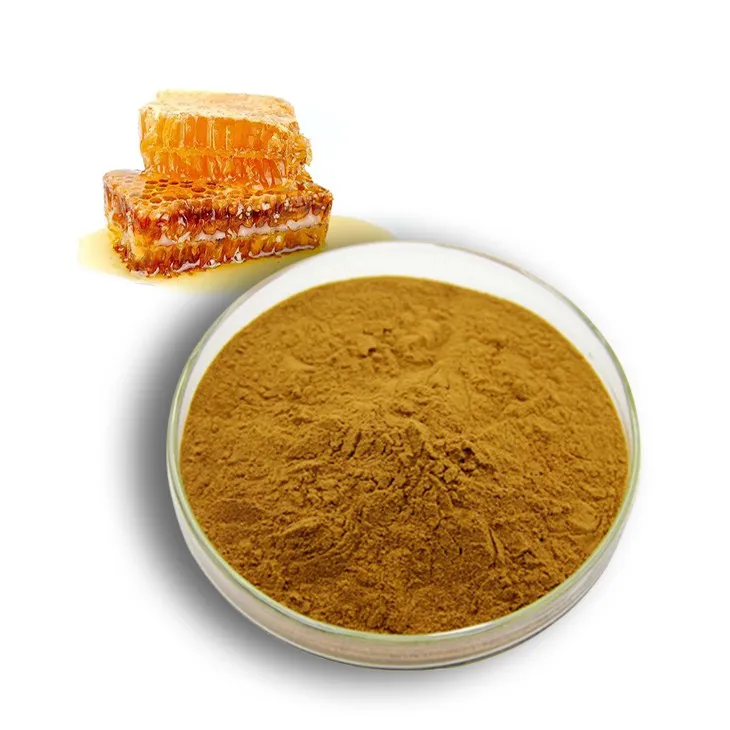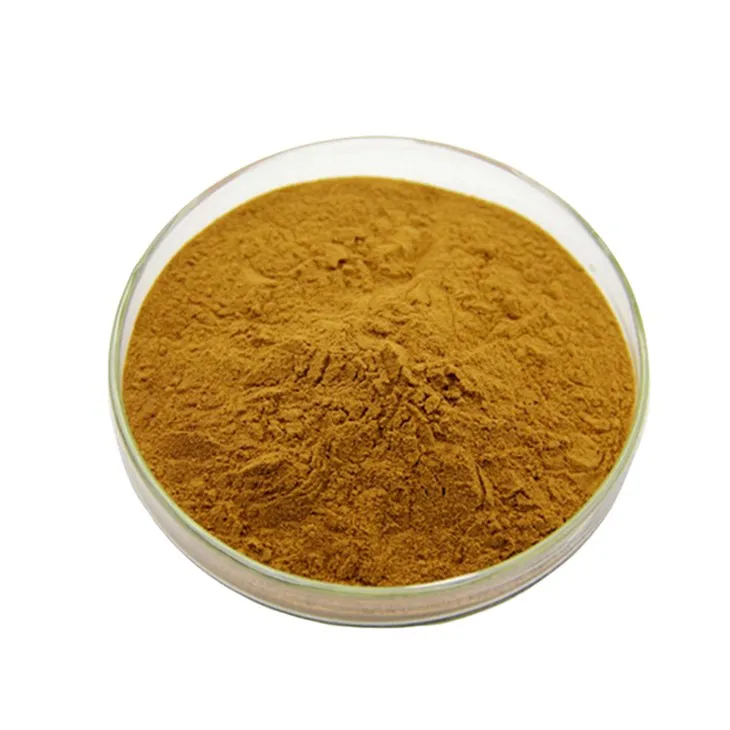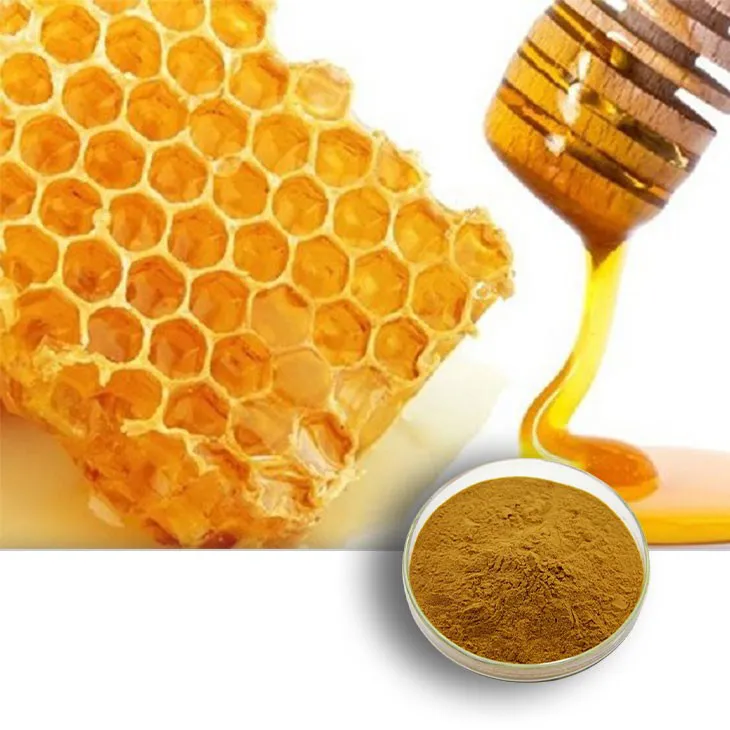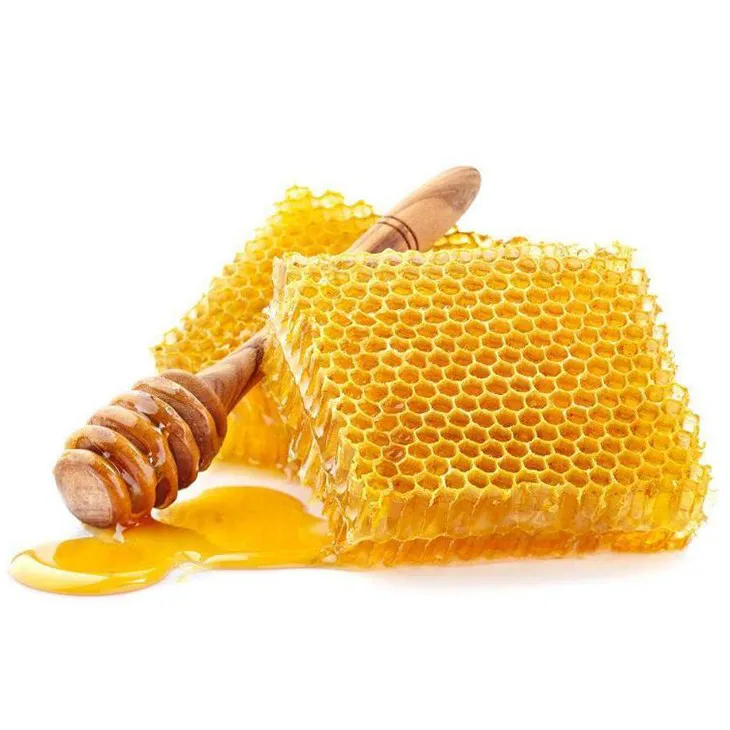- 0086-571-85302990
- sales@greenskybio.com
Optimal Bioavailability of Propolis Extract Powder.
2024-11-28

1. Introduction
Propolis, a resinous substance collected by bees from various plant sources, has been recognized for its potential health - promoting properties. Propolis Extract Powder is a convenient form for consumption. However, the optimal bioavailability of Propolis Extract Powder is crucial for its efficacy. Bioavailability refers to the proportion of a drug or other substance that enters the circulation when introduced into the body and so is able to have an active effect. In the case of Propolis Extract Powder, achieving high bioavailability ensures that the active compounds can exert their beneficial effects on the human body. This article will explore various aspects related to optimizing the bioavailability of propolis extract powder.

2. Raw Material Sources of Propolis and Their Impact on Bioavailability
2.1 Botanical Origins
Propolis is sourced from different plant materials depending on the geographical location of the bees. For example, in some regions, bees collect resins from poplar trees, while in others, they may use resins from coniferous trees or other plant species. The botanical origin of propolis significantly affects the composition of the propolis extract powder. Different plants contain different types of secondary metabolites such as flavonoids, phenolic acids, and terpenes. These compounds are responsible for many of the health - promoting effects of propolis.
For instance, propolis from poplar - sourced resins may have a higher content of flavonoids like chrysin and galangin. These flavonoids have antioxidant, anti - inflammatory, and antimicrobial properties. The presence and concentration of such active compounds in the raw material can influence their bioavailability in the extract powder. If the raw propolis has a high concentration of bioactive compounds that are easily absorbed by the human body, it is more likely to result in a propolis extract powder with better bioavailability.
2.2 Purity and Quality of Raw Propolis
The purity and quality of the raw propolis also play a vital role in the bioavailability of the extract powder. High - quality propolis should be free from contaminants such as pesticides, heavy metals, and other pollutants. Contaminants can interfere with the extraction process and may also affect the absorption and metabolism of the active compounds in the human body.
Moreover, the way the propolis is collected and stored can impact its quality. Beekeepers need to ensure that propolis is collected in a clean and hygienic environment. Improper storage conditions, such as exposure to high humidity or direct sunlight, can lead to the degradation of the active compounds in propolis, reducing the potential bioavailability of the resulting extract powder.

3. Modern Technological Means to Improve Bioavailability
3.1 Ultrasonic - Assisted Extraction
Ultrasonic - assisted extraction is one of the modern techniques used to enhance the bioavailability of propolis extract powder. This method utilizes ultrasonic waves to disrupt the cell walls of the propolis matrix. By doing so, it releases the active substances more effectively compared to traditional extraction methods.
During ultrasonic - assisted extraction, the high - frequency vibrations cause cavitation bubbles to form and collapse in the extraction solvent. These cavitation events create intense local forces that can break down the complex structures in propolis, allowing for better extraction of bioactive compounds. For example, flavonoids and phenolic acids that are trapped within the cell walls of propolis can be more easily released into the extraction solvent. This not only increases the yield of the extraction but also improves the bioavailability of the resulting extract powder, as the active compounds are more accessible for absorption in the body.
3.2 Nano - Encapsulation
Nano - encapsulation is another innovative technology for improving the bioavailability of propolis extract powder. This technique involves enclosing the propolis extract within nanoparticles. The nanoparticles can protect the active compounds from degradation in the gastrointestinal tract and also enhance their absorption.
The small size of the nanoparticles (usually in the range of 1 - 1000 nm) allows them to be more easily taken up by the cells lining the gastrointestinal tract. For example, nano - encapsulated propolis extract powder can be more efficiently absorbed through the intestinal epithelium, bypassing some of the barriers that may limit the absorption of non - encapsulated propolis compounds. This can lead to a significant improvement in the bioavailability of propolis, ensuring that more of the active compounds reach the bloodstream and can exert their beneficial effects on the body.
3.3 Microwave - Assisted Extraction
Microwave - assisted extraction is also being explored for its potential to enhance the bioavailability of propolis extract powder. Microwaves can heat the extraction solvent and the propolis sample rapidly and uniformly. This rapid heating can disrupt the cell structure of propolis more efficiently, similar to ultrasonic - assisted extraction.
The advantage of microwave - assisted extraction is that it can significantly reduce the extraction time while maintaining or even increasing the extraction yield of bioactive compounds. Shorter extraction times can help to preserve the integrity of the active compounds, which is beneficial for their bioavailability. For example, phenolic compounds in propolis that are sensitive to heat and long - term extraction processes can be better extracted using microwave - assisted extraction, resulting in a propolis extract powder with improved bioavailability.

4. Individual Differences in Human Bodies and Their Impact on Bioavailability
4.1 Metabolism
Metabolic differences among individuals can have a substantial impact on the bioavailability of propolis extract powder. The human body metabolizes propolis compounds through various enzymatic pathways. For example, cytochrome P450 enzymes play a crucial role in the metabolism of many bioactive compounds in propolis, such as flavonoids.
Some individuals may have genetic polymorphisms in these enzymes, which can lead to differences in the rate of metabolism. People with a more efficient metabolism of propolis compounds may experience higher bioavailability, as the active compounds are more rapidly and effectively processed and absorbed. On the other hand, individuals with slower metabolism may have lower bioavailability, as the compounds may be metabolized more slowly or in a different way, potentially reducing their effectiveness.
4.2 Gut Microbiota
The gut microbiota also plays an important role in the bioavailability of propolis extract powder. The gut is home to trillions of bacteria that can interact with the compounds in propolis. Some bacteria in the gut can metabolize propolis compounds, converting them into more or less bioavailable forms.
For example, certain bacteria may break down complex flavonoids in propolis into smaller, more easily absorbable metabolites. In contrast, an imbalance in the gut microbiota, such as a decrease in beneficial bacteria or an overgrowth of harmful bacteria, may disrupt this process and reduce the bioavailability of propolis. Diet, lifestyle, and the use of antibiotics can all influence the composition of the gut microbiota and, consequently, the bioavailability of propolis extract powder.

5. Conclusion
Optimizing the bioavailability of propolis extract powder is a complex process that involves multiple factors. The raw material sources of propolis, including its botanical origin and purity, are fundamental aspects that can influence the quality and bioavailability of the extract powder. Modern technological means such as ultrasonic - assisted extraction, nano - encapsulation, and microwave - assisted extraction offer promising ways to enhance the release and absorption of active substances. Additionally, individual differences in human bodies, specifically metabolism and gut microbiota, cannot be ignored as they also play significant roles in determining the bioavailability of propolis extract powder. By taking into account all these factors, it is possible to develop strategies to achieve the optimal bioavailability of propolis extract powder, thereby maximizing its potential health - promoting effects.
FAQ:
What are the main factors in raw material sources of propolis that influence the bioavailability of its extract powder?
The geographical origin of propolis can play a role. Different regions may have different plant sources for bees to collect resin, which can lead to variations in the chemical composition of propolis. For example, propolis from regions with rich biodiversity of plants may contain a more diverse range of active compounds. The time of collection also matters. Propolis collected at different seasons may have different qualities. Bees may collect different types of resins depending on the availability of plants during different times of the year, which in turn can affect the bioavailability of the extract powder.
How does ultrasonic - assisted extraction improve the bioavailability of propolis extract powder?
Ultrasonic - assisted extraction uses ultrasonic waves to create cavitation effects. These cavitation bubbles can disrupt the cell walls of propolis more effectively, allowing for better release of active substances. It can break down the complex structures in propolis and make the active compounds more accessible for absorption. This enhanced extraction process results in a higher concentration of bioactive components in the extract powder, which potentially improves its bioavailability in the body.
Can individual differences in metabolism significantly affect the bioavailability of propolis extract powder?
Yes, individual differences in metabolism can have a significant impact. People with different metabolic rates may process the active substances in propolis extract powder at different speeds. For example, individuals with a faster metabolism may break down and absorb the active compounds more quickly, while those with a slower metabolism may have a different pattern of absorption and utilization. Also, the function of certain enzymes in the body, which can vary from person to person, may play a role in metabolizing the components of propolis, thus influencing its bioavailability.
How does gut microbiota influence the bioavailability of propolis extract powder?
The gut microbiota can interact with the components of propolis extract powder. Some bacteria in the gut may be able to metabolize certain compounds in propolis, converting them into more or less bioavailable forms. For example, they may break down complex polysaccharides or other components into smaller molecules that are easier to absorb. On the other hand, the composition of gut microbiota can also affect the overall environment in the gut, which may influence the absorption and utilization of propolis extract powder.
What are the other technological means besides ultrasonic - assisted extraction to improve the bioavailability of propolis extract powder?
Nano - encapsulation is another technology. It can encapsulate the active substances in propolis into nano - scale particles. This can protect the active compounds from degradation in the digestive tract and enhance their solubility, which is beneficial for absorption and thus improves bioavailability. Another method is supercritical fluid extraction. It can selectively extract active components with high purity, and the resulting extract may have better bioavailability compared to traditional extraction methods.
Related literature
- Bioavailability of Propolis and Its Active Compounds: A Review"
- "Propolis Extract: From Production to Bioavailability Enhancement"
- "Factors Affecting the Bioavailability of Propolis - Based Products"
- ▶ Hesperidin
- ▶ citrus bioflavonoids
- ▶ plant extract
- ▶ lycopene
- ▶ Diosmin
- ▶ Grape seed extract
- ▶ Sea buckthorn Juice Powder
- ▶ Beetroot powder
- ▶ Hops Extract
- ▶ Artichoke Extract
- ▶ Reishi mushroom extract
- ▶ Astaxanthin
- ▶ Green Tea Extract
- ▶ Curcumin Extract
- ▶ Horse Chestnut Extract
- ▶ Other Problems
- ▶ Boswellia Serrata Extract
- ▶ Resveratrol Extract
- ▶ Marigold Extract
- ▶ Grape Leaf Extract
- ▶ blog3
- ▶ blog4
-
Standard - process propolis extract powder.
2024-11-28
-
How to make powder with peppermint oil?
2024-11-28
-
Organic konjac powder, Australia.
2024-11-28
-
Chinese Cassia Seed Extract Suppliers.
2024-11-28
-
Suppliers of Organic Diosmin Powder.
2024-11-28
-
Hesperidin with the best reviews.
2024-11-28
-
Organic Epimedium Extract Powder Supplier.
2024-11-28
-
Cactus Extract
2024-11-28
-
Senna Leaf Extract
2024-11-28
-
Uridine-5'-monophosphate Disodium salt
2024-11-28
-
Apricot Powder
2024-11-28
-
Mangosteen extract powder
2024-11-28
-
Avocado Extract Powder
2024-11-28
-
Boswellia Serrata Extract
2024-11-28
-
Konjac Powder
2024-11-28
-
Alfalfa Meal
2024-11-28
-
Red Wine Extract
2024-11-28





















